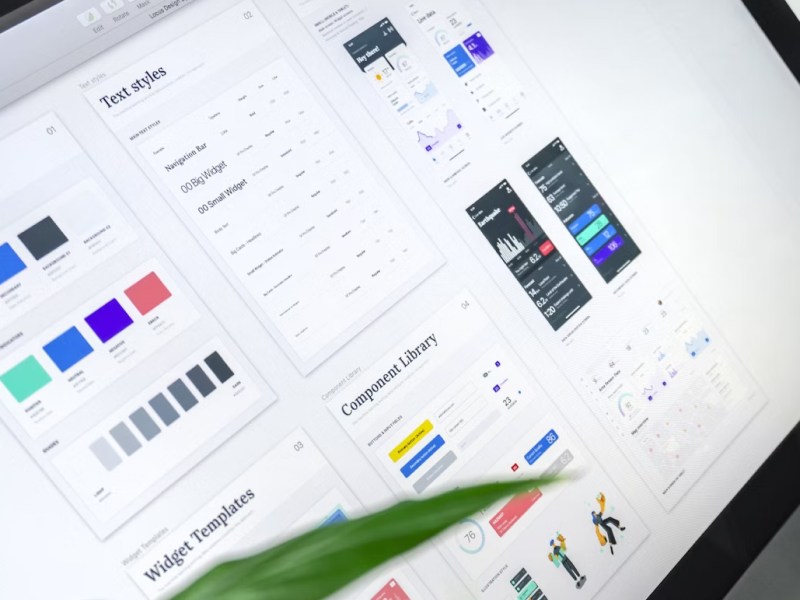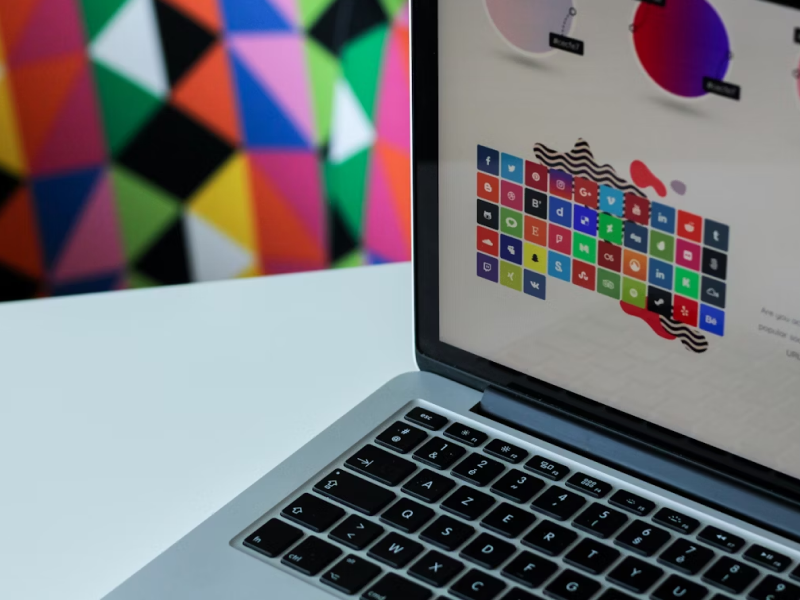Having continuity is mandatory. It creates flow and predictability, improving the user experience and the usability of your design. And styles can help you do that. Style can guide a color palette, and can help you maintain the same typography and layout. Styles can also include certain buttons, forms, and even accessibility settings, animations, and icons.
As Steve Ballmer, former Microsoft CEO said, “Accessible design is good design it benefits people who don’t have disabilities as well as people who do. Accessibility is all about removing barriers and providing the benefits of technology for everyone.”. So, when creating a UI/UX design we need to make sure that anyone can benefit from it. However, coming up with all possible variables and scenarios that can interfere with your design can be challenging.
We should also keep in mind that users commonly use an F-pattern when scrolling through a design, website, or app. So, keeping that in mind don’t overdo it with a ton of details that will slow down your user when interacting with it. And, variables can help us try out different versions of the UI UX designs and see which one is the most accessible.
Styles are used to make your work more efficient. A style can allow you to make several changes at the same time, defining paint and colors, the text, effects, and the layout grids. Let’s say the primary color you have chosen for your style doesn’t fit in with the rest of the design, so, you decide to change the color into a more suitable one. And, if you worry that you’ll need to redo the whole style, that’s not the case, as the primary color you have changed for your style will be applied to the whole UI UX design.
So, a style gives you the ability to categorize a set of properties that can be applied and reused all over your projects or files within your organization or team. Massimo Vignelli, the famous Italian designer, believes that “Styles come and go. Good design is a language, not a style.” so you need to keep in mind that accessibility comes first in all designs. All designs should act according to their users, so, when choosing specific elements and styles for your design, choose them easily and suited for your audience. Accessibility is the one that can improve usability and features like an intuitive design, and clear and organized navigation that can be used by everyone. Being accessible should be more important than having a complex or aesthetically pleasing design that is hard to understand or read.
Variables help us step up our game. They are the tools that help designers make changes faster and deliver better results to their customers. Variables can store data with the help of tokenization. Variables make tasks simpler, they can provide solutions that can happen faster, helping us save time when creating a UI/UX design, managing one, or building complex prototypes.
Variables have the purpose of storing values that can be reused. The value gathered by the variables can be reused across your design when changing design properties and prototyping certain actions. The reason they were created is to make our lives easier. Variables make tasks simpler, they can provide solutions that can happen faster, helping us save time when creating a design, managing one, or building complex prototypes.
However, when it comes to designing or starting a project, you will require both of them. Variables and styles both have the ability to be shared across multiple projects from the same team or organization in common. Variables are single values and can hold single color values on the other hand styles have multiple colors involved and this usually happens when using gradient fills, images, GIFs, videos, and even blend modes. This can be helpful when starting similar projects or when designing the web versus the app design for the same client or product.
Another common aspect both variables and styles share is their rapidity when supporting changes at the same time in real time. Variables and styles give you the ability to act as fast as you can and share changes simultaneously. So if you decide that the image used for a card or another element is not the best option for your design you can instantly change it all over your project and save up time.
When it comes to the difference between styles and variables, we can agree on the fact that they are built differently. Style has the capability of holding combinations of values that can be applied all at once. So, let’s say you want to change the color, the gradient fill, and the image throughout your UI/UX design. With styles, you can do that in no seconds, but with variables, you are restricted by the number of values, so you will be able to change a single value at a time.
Variables have the ability to hold individual values, but they can be expressed one at a time. The properties a variable holds can’t be stacked one on top of each other as we see on styles.
Think of variables as the pages from a book, you can see one at a time, but when it comes to styles you see the book that holds all the pages, they are stuck.
For a better understanding, you can also think of variables as shampoo, and can only do one task at a time. But, on the other hand, we have 3 in one shampoo, which can do several tasks at once, as styles do. So when choosing the right tool for you, keep in mind that variables offer you the possibility of reusable colors that have the capability of responding to different modes. And you should think of styles when you want reusable gradients, or when you want to combine modes or blend multiple files.
We at uinkits understand the importance of inputs in great user experiences and creating amazing UI designs. That’s why we’ve developed a Figma UI Kit with design components that include these essential UI elements that enable you to design intuitive and user-friendly interfaces effortlessly.
“You press the button, we do the rest,” – Kodak.
Inspired by this iconic tagline from Kodak, we believe in simplifying the design process for you. Our Figma UI Kit, uinkits, is a complete design system with UI components that allows you, as a UI UX designer, to create your products as quickly as pressing a button.
Our design system includes components, icons, variables, cards, buttons, and everything you need for your design process. All you have to do is take your UI design component needed, and you’re ready to use it in your designs!







